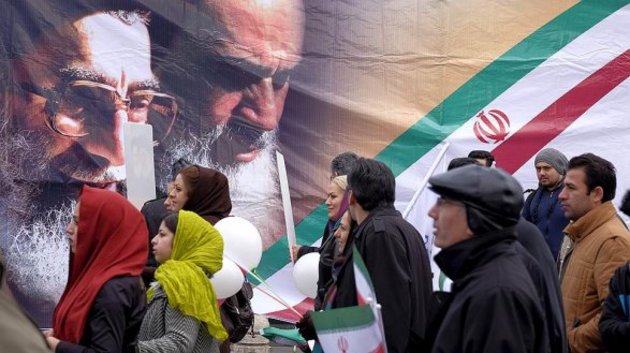Today, the parliamentary elections are held in Iran. More than seven thousand candidates apply for 290 seats in the country's legislative body. They were approved by Iran’s Guardian Council. US Special Representative for Iran Brian Hook has already declared that the upcoming parliamentary elections are stacked. The West is generally skeptical about the upcoming election.
Voters threaten to boycott election in Isfahan where most reformist candidates have been banned, Financial Times writes in the article Ordinary people are so disillusioned’: Iran protests cast shadow over polls
It makes little difference what promises parliamentary candidates make to 34-year-old cab driver Mehdi. Badly beaten in the protests that convulsed Iran late last year amid anger at rising fuel prices, he has lost what little faith he had in the Islamic republic or its elected MPs to improve the lives of citizens. “Ordinary people like me are so disillusioned . . . that I think whoever is elected will eventually raise up their hands in surrender against the economic and political decisions of the system,” said Mehdi, a driver for Snapp, the Iranian version of Uber, in the ancient city of Isfahan ahead of parliamentary polls on Friday.
Famous for its Islamic architecture, the city — so beautiful that Iranians describe it as “half the world” — bears signs of both the November protests, in which activists allege 20 died in Isfahan alone, and the upcoming polls that reformists fear will lead to the creation of a radical new assembly. In between the burnt-out banks, Mehdi reads out slogans from campaign posters as he drives past: “The pain must be talked about, voices must be heard”; “Economic boom with clean-handed [candidates]”; “Collective genius, revolutionary belief”. These “slogans may fool confused voters but not those like me who have made up their minds”, said Mehdi, adding that MPs did little to stand up for protesters or help ordinary people.
Four out of five of Isfahan’s parliamentary seats are held by reformists but in Friday’s election, it has only one reformist candidate — Nahid Tajeddin, a sitting MP. With hardliners eager to use the parliamentary polls to shape a radical new assembly ahead of next year’s presidential election, Iran’s Guardian Council, the constitutional watchdog that vets prospective candidates, has disqualified hundreds of reformist candidates, including a quarter of sitting MPs. A landslide victory for hardliners is seen as inevitable.
With voters complaining about unemployment, water shortages and declining purchasing power, hardliners are also struggling to muster enthusiasm for their candidates. “It is difficult to make a person who cannot afford a piece of bread for his family’s dinner to go to the poll, let alone vote for our favourite candidate,” said one volunteer.
Hassan Kamran, a six-time member of the parliament for Isfahan who is close to hardliners, acknowledged that people were disheartened. But Mr Kamran, who is running as an independent candidate, believes that despite “complaining”, Iranians have always shown their support for the Islamic republic at the ballot box. Iran’s enemies might dream of overthrowing the regime, he said, but the public outpouring of grief for military commander Qassem Soleimani, killed in a US drone strike in January, showed that the system was stable.
Asghar, 65, sells aquariums and tropical fish in Imam Khomeini Street. Near his shop, the banks set alight in November’s protests are visible. “I took part in demonstrations that led to the victory of the Islamic revolution [in 1979]. We should stand up for our flag, our upheaval and the Islamic republic,” he said, adding that Iranians should tolerate economic hardship and not kneel down for US president Donald Trump.”
However, hardliner dominance of parliament could backfire, warned Behzad Haghpanah, a reform-minded political analyst. “People will gradually lose hope that they can make changes within the framework of the Islamic republic,” he said. “Hence, more protests and unrest could be expected in the streets in the future.”
Driving around Isfahan in search of fares, Mehdi added: “There is no difference between candidates, either a reformist or a hardliner, any more. They will not speak up for us.”






